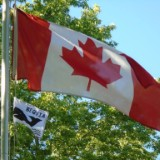Joshua
Harding is a novelist and award-winning short story writer and poet. His work is currently featured on Acidic Fiction, The Loose Leaf Press, and QuarterReads. He’s been a nuclear missile mechanic and a
suspected member of Sinn Féin. Before
that he was an environmental lobbyist, a cemetery restorer, freelance artist,
puppet master, set designer, actor, carpenter, mortuary officer, scrimshander,
garbage man, you name it. The only thing he’s done longer than any of
them is write. He lives in a four-person artists’ colony in the woods
north of Chicago.
You can check out
Joshua’s website:
http://jharding71.wix.com/joshuajharding or follow him on Twitter:
@jharding71. His short story I Dated Mother Nature is available in
the anthology Acidic Fiction #2: Toxic
Tales on Amazon. His debut science
fiction novel, Red Lakes is also available
on Amazon: https://www.amazon.com/author/joshuaharding
Below is an excerpt from his short story Invoking Ganesh, which won first place in the Writer’s Digest Popular Fiction Awards for the Horror category.
Copyright is held by the author. Used by permission.
Sandeep was cleaning the Slushie machine when his first customer
committed suicide. The gunshot popped like a Diwali firework and shattered the
rear windshield of the girl’s Camry. At first Sandeep thought she’d had a
backfire until he saw the spider web of cracks in the glass and the spray of
blood.
It was 2:34 am.
The young woman had just bought a pack of cigarettes—”Merits in
a box,” she’d said—and proceeded to light one up right in front of the register.
“You can’t do that here,” Sandeep said. He knew it was going to
be a long night.
The girl responded to his scolding by blowing a cloud of blue,
mentholated smoke toward the hotdog rollers. She was in her early twenties.
Brunette with blue eyes and an aquiline nose through which she deftly
French-inhaled her smoke. She was wearing a scoop front, leopard print
tank top, distressed jeans, and high heels. Her makeup and jewelry looked as if
she’d just left a nightclub, though the nearest venue was over four hours away
in Albuquerque. “You gonna stop me, Hajji?” she asked.
“Miss, I don’t want any trouble.”
“You think I’m trouble?” She trailed her fingers along the
Hostess display, knocking several fruit pies to the floor. She let out a high,
barking laugh that rang loudly in the empty store. “That’s awesome! I’m
trouble….troublesome…double-trouble. The girl your mother warned you about!”
“Please leave. Now,” Sandeep said.
“All right, there, Gandhi, don’t get your diaper in a twist.”
She turned on her heel and pushed through the door.
Sandeep emerged from behind the counter and peered around the
O-P-E-N sign to watch her cross the parking lot to her Toyota. The scent of her
cigarette and perfume lingered. He stooped and restored the fruit pies to their
rack and threw out five hotdogs.
The young woman climbed into her car but remained parked beside
the pump. A tiny, blue cloud escaped through her window.
“You can’t smoke near the pumps,” Sandeep said to himself. He
shook his head and bent to retrieve a rag out of a red bucket below the
beverage station. He began wiping the Slushie nozzles when the shot fired.
“9-1-1. What is your emergency?”
“A girl just shot herself in the parking lot!”
“Ok. Just stay on the line with me, sir. Where are you located?”
“On Route 70 east of Roswell. At the Kum & Go!”
“We’re sending someone now. Are you with the girl?”
“No! I’m calling you!”
“Where is she now?”
“She’s still in her car.”
“What is her condition?”
“Good God, woman! The back of her head is gone! She’s dead!”
“Please remain calm, sir. We’re sending someone out right now.
Stay where you are.”
“All right.” The line disconnected and Sandeep thumbed the
number for his manager, Dick Bliefnick. The call went immediately to voicemail.
“Boss, there’s been a shot, man! A woman shot herself! In the
parking lot! I called 9-1-1 but you really need to get out here, man!”
Just then the door chimed and swung open. A large, hairy man
dressed all in denim stepped inside. Sandeep hung up the phone and stared
dumbfounded at the new customer and wondered if he’d seen the dead girl. “Busy
night, huh?” the man said.
“Yeah…” said Sandeep, “…busy night.”
The man strolled up and down the aisles, idly taking his time
with his selections. He had a full beard and an earring and black rigger’s
boots. He had a blue bandana tied around his head, buccaneer style and whistled
as he shopped—Three Dog Night’s Shambala, if Sandeep guessed right.
Sandeep glanced outside and saw a Kenworth parked on the far
side of the parking lot. No trailer was attached to the rig and it looked like
it was still running. The trucker would’ve walked right past the dead
girl’s car to enter the store. It was a miracle he hadn’t noticed her—or had
he?
When he’d made his selections, the trucker approached Sandeep
and meticulously laid a package of Good ‘n’ Plenty, some Twizzlers, Corn Nuts,
and a Red Bull before him.
He leaned on the counter with his arms slightly akimbo. The
front of his denim jacket opened and Sandeep saw a 9mm in a leather holster
under the man’s left arm.
“Will that be all?” Sandeep asked.
“And this,” he said. He plucked a pink, stuffed elephant from a
rack. “He’s gonna look out for roadblocks and obstacles for me. Sit him right
on the dashboard for good luck.”
Sandeep rang up his purchase while the trucker cradled the
elephant to his cheek. His salt and pepper beard crinkled against the tag which
read: “Webkins.” The elephant looked at Sandeep from the man’s shoulder with an
accusatory stare.
“Wait. Give me a Mega Millions,” said the trucker. He laid a
rumpled single on the counter. “I want these numbers: 33 84 22 10 37 71 and 9.”
“All right,” Sandeep replied. He took the bill and pulled up the
numbers while the trucker cuddled the elephant some more. Sandeep reached
subtly below the counter and fingered the knob of a cricket bat he kept there
just for reassurance while he handed over the lottery ticket.
“Can I get the keys to your john?”
Sandeep reached above the cigarettes and retrieved a brass key
chained to a broken broom handle. The trucker gathered his purchase in both
arms, strode to the door, and pushed it open with his backside.
3:02am.
Sandeep went out the empty the trash by the pumps. (He needed to
keep busy, but figured the can nearest the dead girl’s car could wait until
they came for her.) The wind gusted from the southeast like a dusty hairdryer.
The Milky Way stretched from the north horizon over the roof of the store. The
neon sign that said, “Lotto” winked seductively on and off. A meteor traced a
white line to the west and was gone.
A Mercedes had pulled up ten minutes before and still sat
outside the carwash. The driver’s silhouette moved slightly in the sodium
lights. As Sandeep was hauling a bag of paper towels and greasy Karl’s Jr.
wrappers to the dumpster when he noticed the blood trickling out from under the
restroom door.
He dropped the trash and banged on the door. “Hello?!” he cried.
“Sir?! Are you all right in there?” He shook the handle. “Hello?!” Sandeep
stood back and tried to avoid stepping in the puddle. Helplessly he took in the
tableau: the dilapidated outbuilding, the grimy, locked door, the sublime
darkness of the desert, and the blood. “God damn, Dick! I told you we needed
another key!”
Red and blue lights cut through the darkness on the horizon.
Sandeep turned and could see the cruiser still about two miles away across
the flat skillet of the plain. “About time!” he said.
The cop broke down the restroom door first.
Inside, the trucker had eaten all of the Good ‘n’ Plenty,
Twizzlers, half the Corn Nuts, and finished the Red Bull before he’d smashed
the mirror and slit his wrists with a shard of glass.
“Good God, man!” whispered Sandeep. The cop rummaged through
some papers on the floor in front of the dead trucker. He plucked up
correspondence from a divorce lawyer and something from Teamsters Local 74
detailing severance benefits.
The cop whistled as he read the documents. “Christ, my union
would give me so much more payout if I were to get the axe.” The lottery ticket
fluttered from the cop’s hand to the edge of the sink. He picked it up,
considered it, and turned to Sandeep. “Here,” he said and tucked the ticket
into Sandeep’s shirt pocket right below the embroidered Kum & Go logo. He
peered at Sandeep’s nametag. “You keep that, Sand…Deep. Maybe you’ll have
better luck than he did.”
They searched the girl’s car next. The cop took in her outfit:
the tight jeans, the high heels, the makeup. He made a show of peering down the
front of her tank top to where one of her small breasts lay partially exposed.
“She’s dressed to kill, ain’t she?” he asked Sandeep with a leer. The backseat
was drenched in blood and the head restraint had been blasted apart by the
gunshot. It looked like a boll of cotton or a cloud of powder thrown in a Holi
festival.
The cop turned the key in the ignition. The speakers came alive
and Katy Perry blasted out mid-roar. The cop snapped off the radio. “I hate
that song,” he said. The young woman’s cell phone, which had been charging in
the power jack, blinked on.
The cop retrieved it and scrolled through a recent series of
texts. “Where u at fatty?” he read aloud.
“Still crying? LOL!”“Why don u just die? Everyone hates u!”
“Ur clothes suck! Wherd u get them walmart?”
“Dumb slut.”
“Fat bitch!”
He tossed the phone back on the passenger seat. “Guess we
know who she dressed to kill, huh?”
“How awful…” said Sandeep.
The cop straightened. “All right. Let me call the coroner and
I’ll meet you inside.” The cop flicked a piece of headrest foam from his sleeve
as he sauntered over to his cruiser. The carwash started up and the Mercedes
rolled slowly inside. Steam rose and floated away on the wind eastward towards
Clovis and the Texas Panhandle.
Back inside the store, the cop made himself a cup of coffee. He
shook three packets of Dixie Crystals into it then topped it off with the
powdered bone dry creamer. He didn’t offer to pay for it.






























